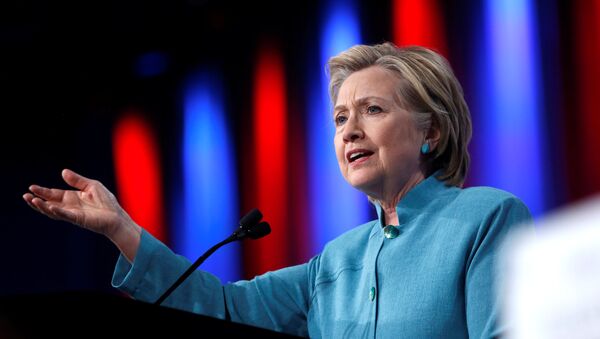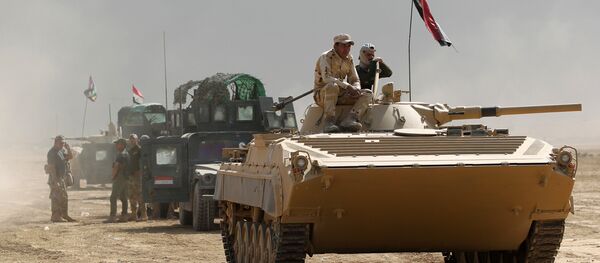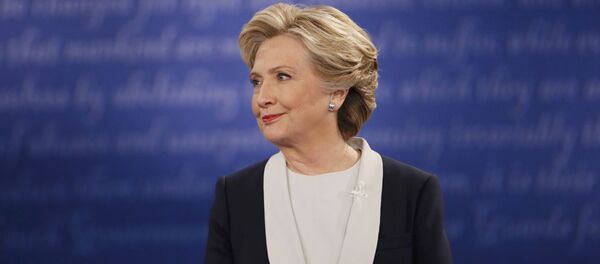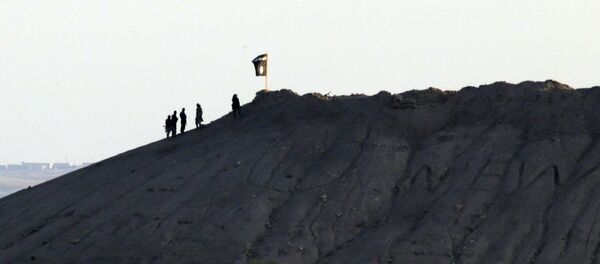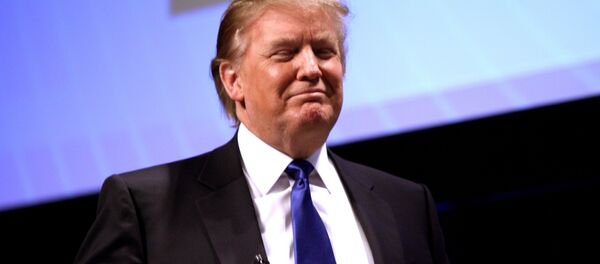The start of the operation provoked suspicions that its timing was linked with the US ongoing presidential campaign which sees the two candidates — Democrats' nominee Clinton and the Republican candidate Donald Trump — going neck-and-neck in a tight race. On Monday, White House press secretary Josh Earnest rejected these claims, saying that the decision to start the military campaign for Mosul was solely in the hands of Iraqi Prime Minister Haider al-Abadi.
Nevertheless, on Wednesday evening during the final round of debates with Clinton, Trump said that Iraq had launched the mission to help Clinton win the presidential race.
"A successful liberation could add votes to Hillary Clinton, in that the Democrats can be seen as tough on terrorism, so to speak," a research fellow in the US-based Middle East Forum Aymenn Jawad Tamimi told Sputnik.
The expert added though that the Mosul operation, from the perspective of US politics, has more to do with Obama's image rather than securing Clinton's chances. "If the operation succeeds before Obama leaves office, he can at least be seen as the one who helped quell the Daesh problem," Tamimi said.
Ikbal Duerre, a Kurdish political scientist and Middle East expert, agreed that retaking Mosul would influence the presidential race in the United States.
"It counts it will help in the elections…The United States wants to retake Mosul, and to do it right before the elections, that would be a double success," the expert told Sputnik.
Clinton's Foreign Policy Plans
On Wednesday, Clinton made a clear pledge to pursue a no-fly zone over Syria if elected — a policy decision that Obama has declined to take. During the debates with Trump, including the latest round, Clinton also promised as potential commander-in-chief of the Armed Forces to expand US airstrikes against Daesh and to support ground forces in campaigns to recapture Raqqa in Syria.
Earlier, Clinton has also stated that she would consider arming the Kurds, "our best partners in Syria, as well as Iraq," in an attempt to fight against Daesh.
Trump's Vision
On Wednesday night, Trump continued to push on his opponent regarding this issue. "Let me tell you, Mosul is so sad. We had Mosul. But when she [Clinton in her role of then-Secretary of State] left, when she took everybody out, we lost Mosul. Now we're fighting again to get Mosul," Trump said.
According to the 2008 Status of Forces Agreement, negotiated by the administration of George W. Bush, all American troops were to leave Iraq by the end of 2011. President Barack Obama and then-Secretary of State Clinton favored keeping some US troops in Iraq beyond that date. Later, Obama ordered the withdrawal to continue as scheduled.
Asked about the Aleppo siege, Trump called it a "humanitarian nightmare" and asserted that people there "are being slaughtered because of bad decisions" which, according to him, to a large extent may be blamed on Clinton. One of those mistakes, according to Trump, was to back rebels while not knowing for sure who they were and not being able to clearly differentiate them from terrorists.
Trump promised to go hard after Daesh if elected president, though he has been vague about the exact steps he plans to take.
"I think Trump would likely reduce US support for rebels through the operations centers in Amman and Turkey, and take more of a backseat and let Russia sort things out," suggested Middle East Forum research fellow Tamimi.
"But it is unclear whether such realist impulses would be matched by policy given the likely presence of hawkish Middle East advisers in a Trump administration, while perceptions that Trump is anti-Muslim could limit cooperation from states in the region," Flynt Leverett asserted.
The expert has stressed that no matter who becomes the next US president, Washington's Middle East policy is likely to become more confrontational than under the Obama rule.
